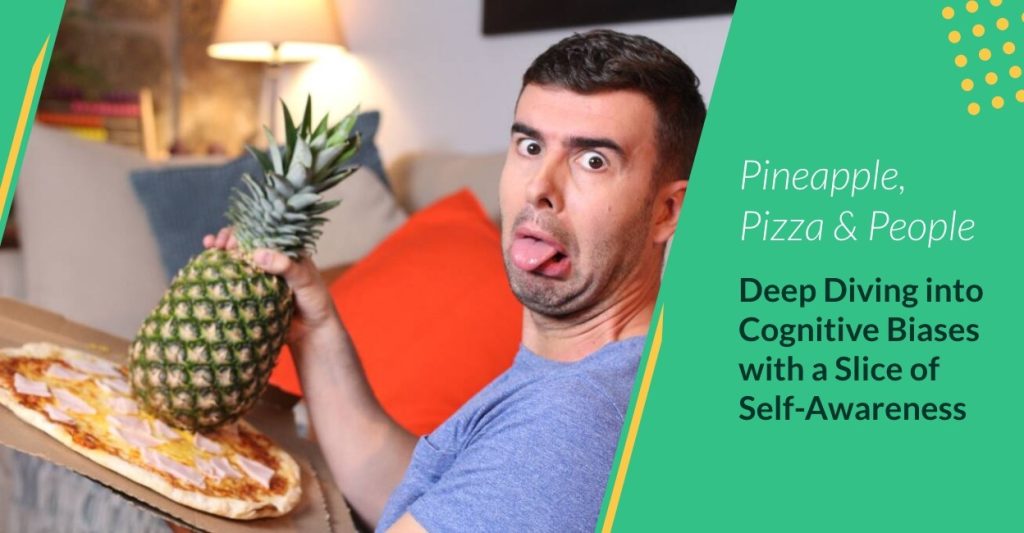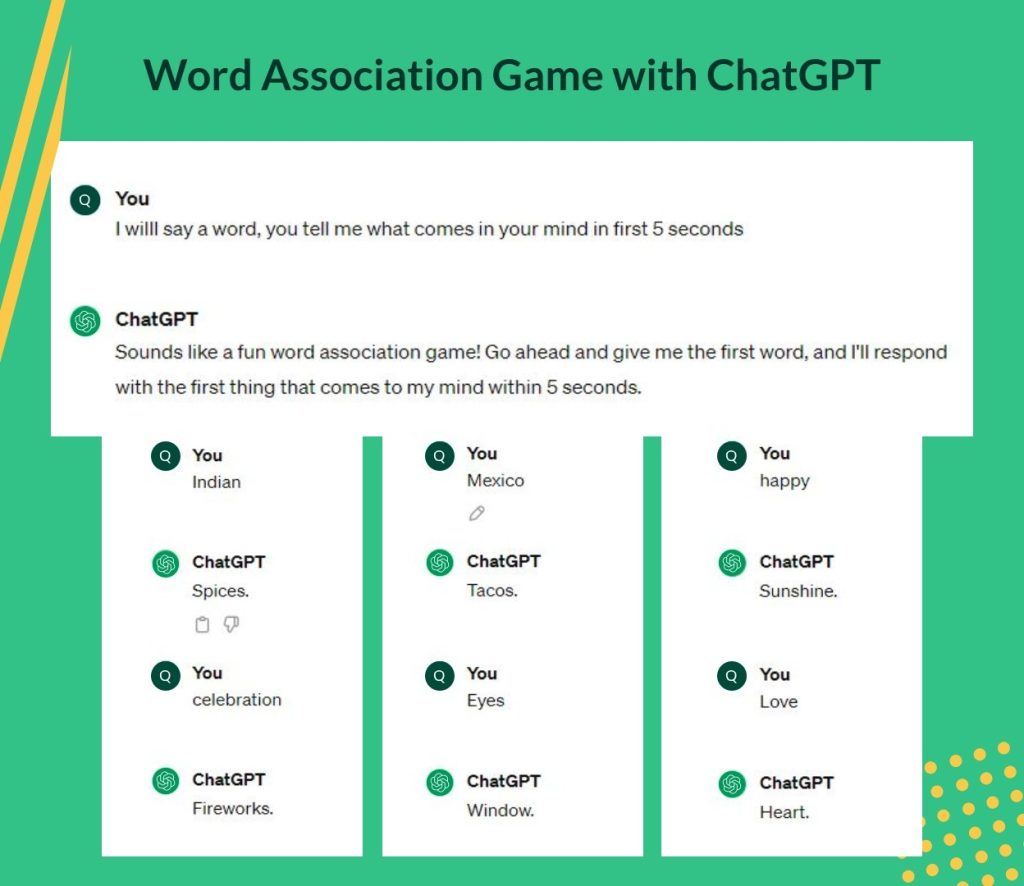
Alright, I’m not here to start a war over the world’s one of the most debated topics: pineapple on pizza. Liking or hating pineapple on pizza is a personal choice, but hating or disliking people against your choice is a cognitive bias!
Let’s kick things off with a quick game I played with ChatGPT 🙂 where I provided a word, and it had to respond with what came to mind (system) within the first 5 seconds. Here are the results I received:
- Indian -> Spices
- Celebration -> Fireworks
- Happy -> Sunshine
- Love -> Heart
- Hate -> Conflict
- Mexico -> Tacos
- Eyes -> Window
- Italy -> Pizza

Interestingly, my associations were quite different from ChatGPT’s. I would have likely linked the word ‘Indian’ with culture and ‘love’ & ‘hate’ to individuals or situations. As for ‘Mexico,’ my mind would have probably gone to tacos, but the prevalence of a web series has conditioned me to associate it with narcotics. Also, you might have completely different thoughts on the above words, which is obvious.
Delving into a deeper context, the underlying purpose of this game is to unravel the choices, thoughts, and biases we all have developed through our life experiences, upbringing, and years of observations.
These factors, especially biases, impact talent acquisition, sourcing, and hiring. It hampers our decision-making, and we might miss the right candidate. Let’s delve into its significance!
“Cognitive bias refers to systematic patterns of deviation from norm or rationality in judgment, often stemming from mental shortcuts, social influence, emotional factors, or individual perspectives. These biases can lead individuals to perceive and interpret information subjectively, deviating from objective or logical reasoning. Cognitive biases impact decision-making processes and can contribute to systematic errors in judgment.” [Wikipedia]
Why Recognizing Cognitive Biases Matters in Talent Sourcing:
1. Fairness and Objectivity:
Imagine biases steering us toward unfair hiring practices. Recognizing these biases becomes a tool for intervention, ensuring that every candidate gets a fair shot based on their skills and qualifications rather than preconceived notions.
2. Avoiding Hiring Mistakes:
Biases may inadvertently lead to overlooking highly qualified candidates or favoring individuals based on superficial traits. Recognizing biases empowers us to sidestep these pitfalls, ensuring that hiring decisions align with the genuine needs of the role.
3. Diversity and Inclusion:
Biases act as barriers to building a diverse and inclusive team. Recognizing and addressing biases opens the door to reconsidering assumptions, fostering a workplace that embraces a broader spectrum of talent and perspectives.
4. Building a Positive Employer Brand:
We build a positive reputation as an employer by showcasing a commitment to fair hiring practices. It, in turn, attracts top-tier talent who value diversity and inclusion as integral components of a workplace culture.
How to Identify Your Cognitive Biases:
1. Reflect on Yourself:
Engage in thoughtful introspection. Reflect on instances where assumptions might have influenced decisions rather than objective criteria.
2. Ask for Feedback:
Invite opinions from friends, colleagues, or mentors. Diverse perspectives can illuminate blind spots, providing valuable insights into potential biases we might not know.
3. Learn from Training:
Investing in workshops or training programs provides a comprehensive understanding of cognitive biases and equips us with strategies to mitigate their impact on decision-making.
4. Follow Structured Processes:
Establishing robust and standardized processes for talent sourcing and evaluation helps maintain consistency, reducing the risk of biases influencing decisions.
5. Use Blind Evaluation:
Consider adopting methods where you evaluate candidates without access to personal details. Anonymized assessments in the early stages minimize the influence of biases during the initial screening.
Conclusion
We can cultivate a fair, diverse, and inclusive talent sourcing process by being aware of cognitive biases and taking proactive steps to address them. It, in turn, leads to more informed hiring decisions aligned with organizational goals. Let’s embark on the journey toward unbiased talent selection! Also, let me know if you like pineapple on your pizza 😬. If you do, I’ll make sure not to be biased because of your choice!
